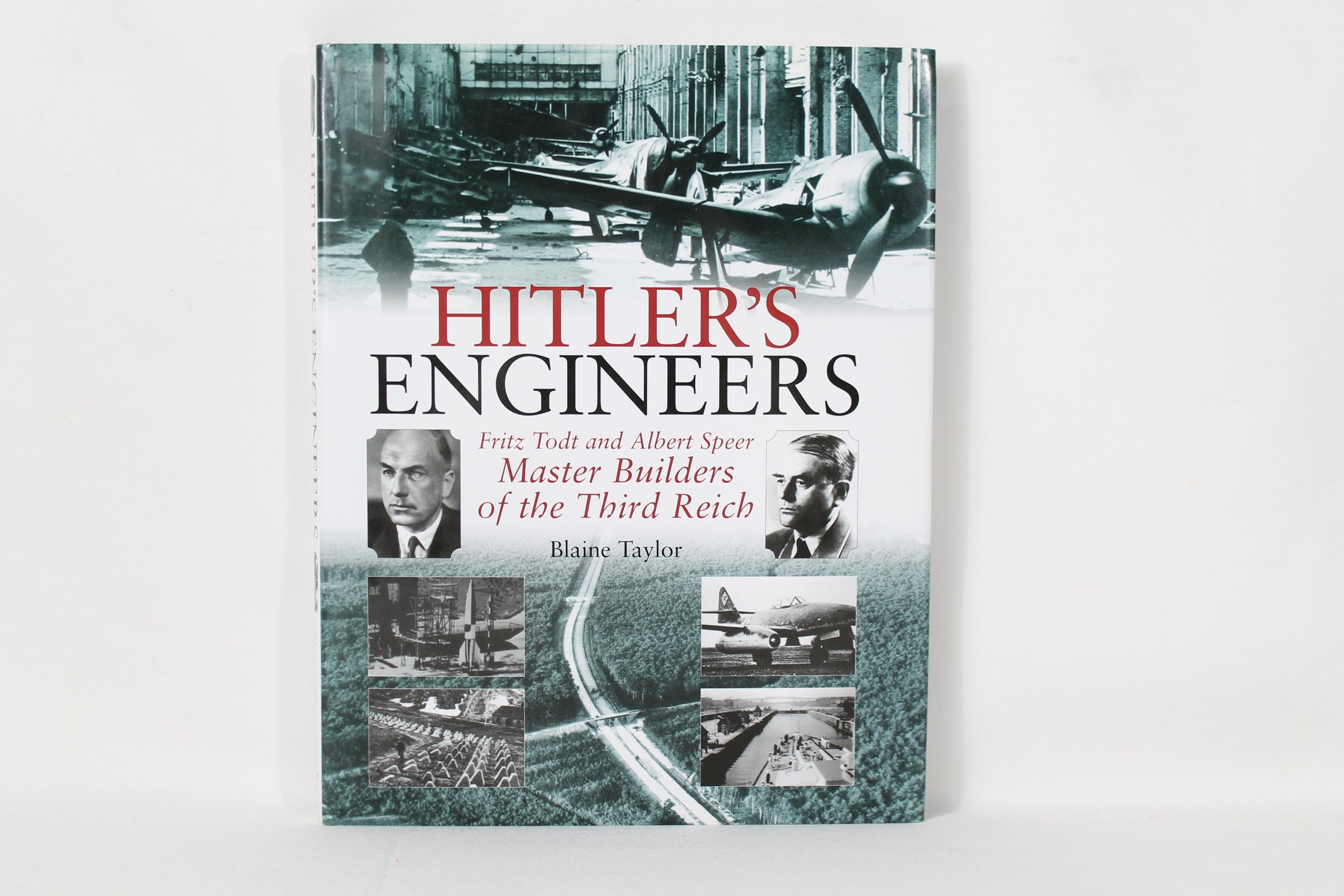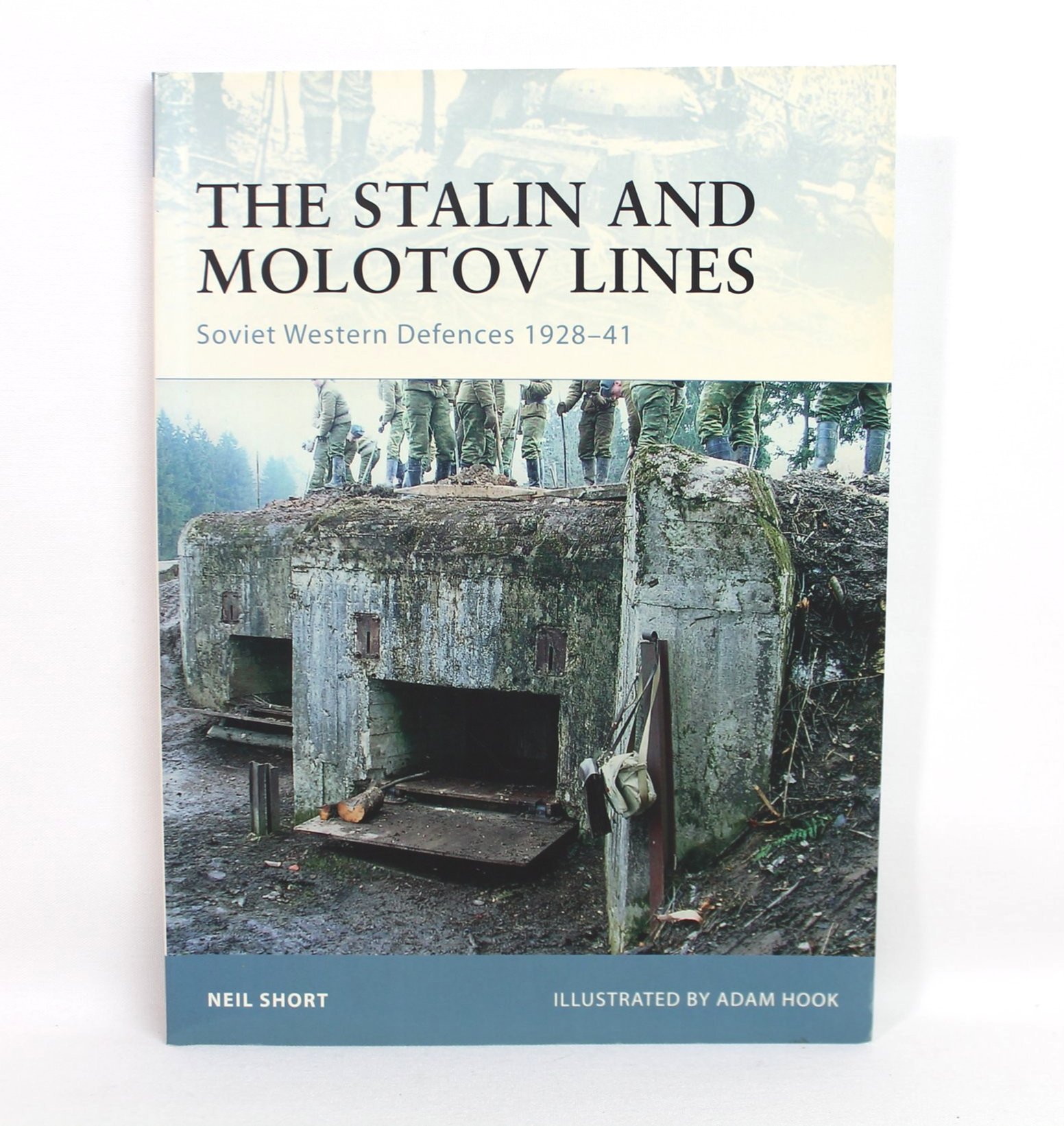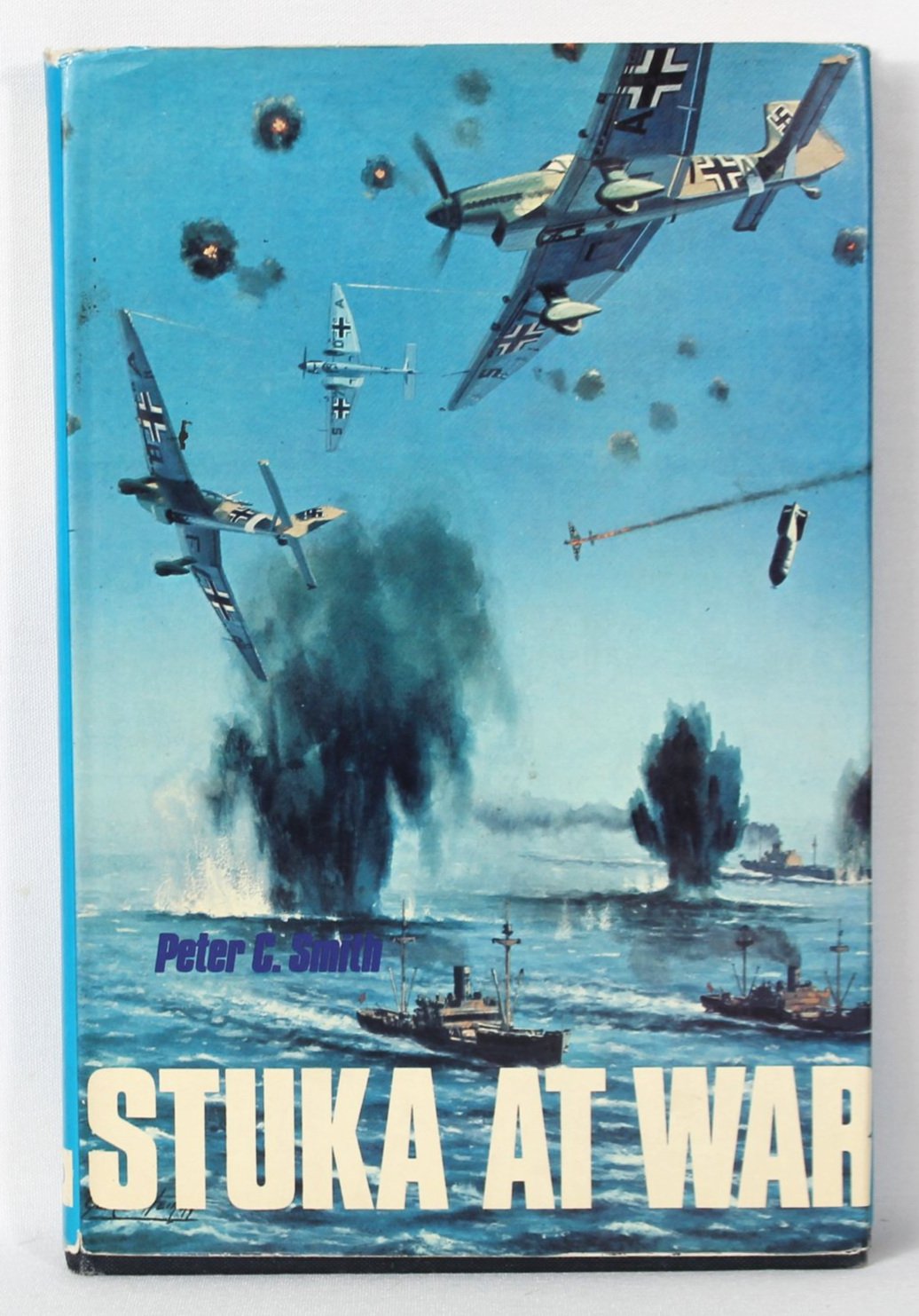Hitler's Engineers: Fritz Todt and Albert Speer Master Builders of the Third Reich by Blaine Taylor
While Nazi Germany’s temporary ascendancy owed much to military skill, the talent of its engineers not only buoyed the regime but allowed it to survive longer than would normally be expected. This unique work focusing on Fritz Todt and Albert Speer is based on many previously unpublished photographs and artwork from captured Nazi records.
Todt was the brilliant builder of the world’s first superhighway system, the Autobahn, and the architect of the German West Wall, the Siegfried Line, that predated the later Atlantic and East Walls. The builder of each of the wartime “Führer Headquarters,” as well as the submarine pens, Todt was killed in a still-mysterious airplane crash that may well have been a Nazi death plot, though he was given a state funeral by Hitler.
Todt was succeeded as German Minister of Armaments and War Production by the Führer’s longtime personal architect, Albert Speer, who was described by the Allies after the war as having prolonged the conflict by at least a year. Called a genius by Hitler, Speer designed and built the prewar Nuremberg Nazi Party Congress rally stands and buildings. More importantly, amid the constant rain of Allied bombs and the Soviet advances from the East, Speer managed to keep the German industrial machine running until the spring of 1945, though it was driven ever further underground. He also allocated resources to fortifications and counterattacks, like the V-missile installations, against both West and East, in attempts to stave off defeat. Convicted as a war criminal at Nuremberg, Speer served twenty years at Spandau Prison and remained a Nazi apologist who died in London in 1981 on the anniversary of the German invasion of Poland.
Together, Todt and Speer were the pillars that propped up the Third Reich through the vicissitudes of battlefield fortune. With over three hundred photographs, this is the first work that examines their role in history’s most terrible war.
Condition: Like New
Pages: 272 Hardcover
Dimensions: 9x11-1/4
Author: Blaine Taylor
Publisher: Casemate
While Nazi Germany’s temporary ascendancy owed much to military skill, the talent of its engineers not only buoyed the regime but allowed it to survive longer than would normally be expected. This unique work focusing on Fritz Todt and Albert Speer is based on many previously unpublished photographs and artwork from captured Nazi records.
Todt was the brilliant builder of the world’s first superhighway system, the Autobahn, and the architect of the German West Wall, the Siegfried Line, that predated the later Atlantic and East Walls. The builder of each of the wartime “Führer Headquarters,” as well as the submarine pens, Todt was killed in a still-mysterious airplane crash that may well have been a Nazi death plot, though he was given a state funeral by Hitler.
Todt was succeeded as German Minister of Armaments and War Production by the Führer’s longtime personal architect, Albert Speer, who was described by the Allies after the war as having prolonged the conflict by at least a year. Called a genius by Hitler, Speer designed and built the prewar Nuremberg Nazi Party Congress rally stands and buildings. More importantly, amid the constant rain of Allied bombs and the Soviet advances from the East, Speer managed to keep the German industrial machine running until the spring of 1945, though it was driven ever further underground. He also allocated resources to fortifications and counterattacks, like the V-missile installations, against both West and East, in attempts to stave off defeat. Convicted as a war criminal at Nuremberg, Speer served twenty years at Spandau Prison and remained a Nazi apologist who died in London in 1981 on the anniversary of the German invasion of Poland.
Together, Todt and Speer were the pillars that propped up the Third Reich through the vicissitudes of battlefield fortune. With over three hundred photographs, this is the first work that examines their role in history’s most terrible war.
Condition: Like New
Pages: 272 Hardcover
Dimensions: 9x11-1/4
Author: Blaine Taylor
Publisher: Casemate
While Nazi Germany’s temporary ascendancy owed much to military skill, the talent of its engineers not only buoyed the regime but allowed it to survive longer than would normally be expected. This unique work focusing on Fritz Todt and Albert Speer is based on many previously unpublished photographs and artwork from captured Nazi records.
Todt was the brilliant builder of the world’s first superhighway system, the Autobahn, and the architect of the German West Wall, the Siegfried Line, that predated the later Atlantic and East Walls. The builder of each of the wartime “Führer Headquarters,” as well as the submarine pens, Todt was killed in a still-mysterious airplane crash that may well have been a Nazi death plot, though he was given a state funeral by Hitler.
Todt was succeeded as German Minister of Armaments and War Production by the Führer’s longtime personal architect, Albert Speer, who was described by the Allies after the war as having prolonged the conflict by at least a year. Called a genius by Hitler, Speer designed and built the prewar Nuremberg Nazi Party Congress rally stands and buildings. More importantly, amid the constant rain of Allied bombs and the Soviet advances from the East, Speer managed to keep the German industrial machine running until the spring of 1945, though it was driven ever further underground. He also allocated resources to fortifications and counterattacks, like the V-missile installations, against both West and East, in attempts to stave off defeat. Convicted as a war criminal at Nuremberg, Speer served twenty years at Spandau Prison and remained a Nazi apologist who died in London in 1981 on the anniversary of the German invasion of Poland.
Together, Todt and Speer were the pillars that propped up the Third Reich through the vicissitudes of battlefield fortune. With over three hundred photographs, this is the first work that examines their role in history’s most terrible war.
Condition: Like New
Pages: 272 Hardcover
Dimensions: 9x11-1/4
Author: Blaine Taylor
Publisher: Casemate








